A Pakistani delegation’s visit to Indian-administered Kashmir, coupled with Prime Minister Narendra Modi’s promise to restore statehood to the region, has sparked optimism for improved relations between India and Pakistan during his third term.
However, experts expressed mixed views on the potential impact of these developments, with some saying they were signs Modi would take a reconciliatory stance towards Islamabad while others said such a move was unlikely since it would “cost him his fanbase”, hurting him and his Bharatiya Janata Party (BJP) politically.
Zafar Choudhary, a political commentator and journalist based in India-administered Kashmir, told This Week in Asia that he believed Modi was planning to take a more pragmatic stance towards Kashmir in his third term while rebuilding some semblance of a relationship with Pakistan.
“To my understanding, there are some back-channel talks happening. Allowing Pakistan’s delegation to Kashmir can be seen as a baby step to engage with Islamabad at some level,” Choudhary said.
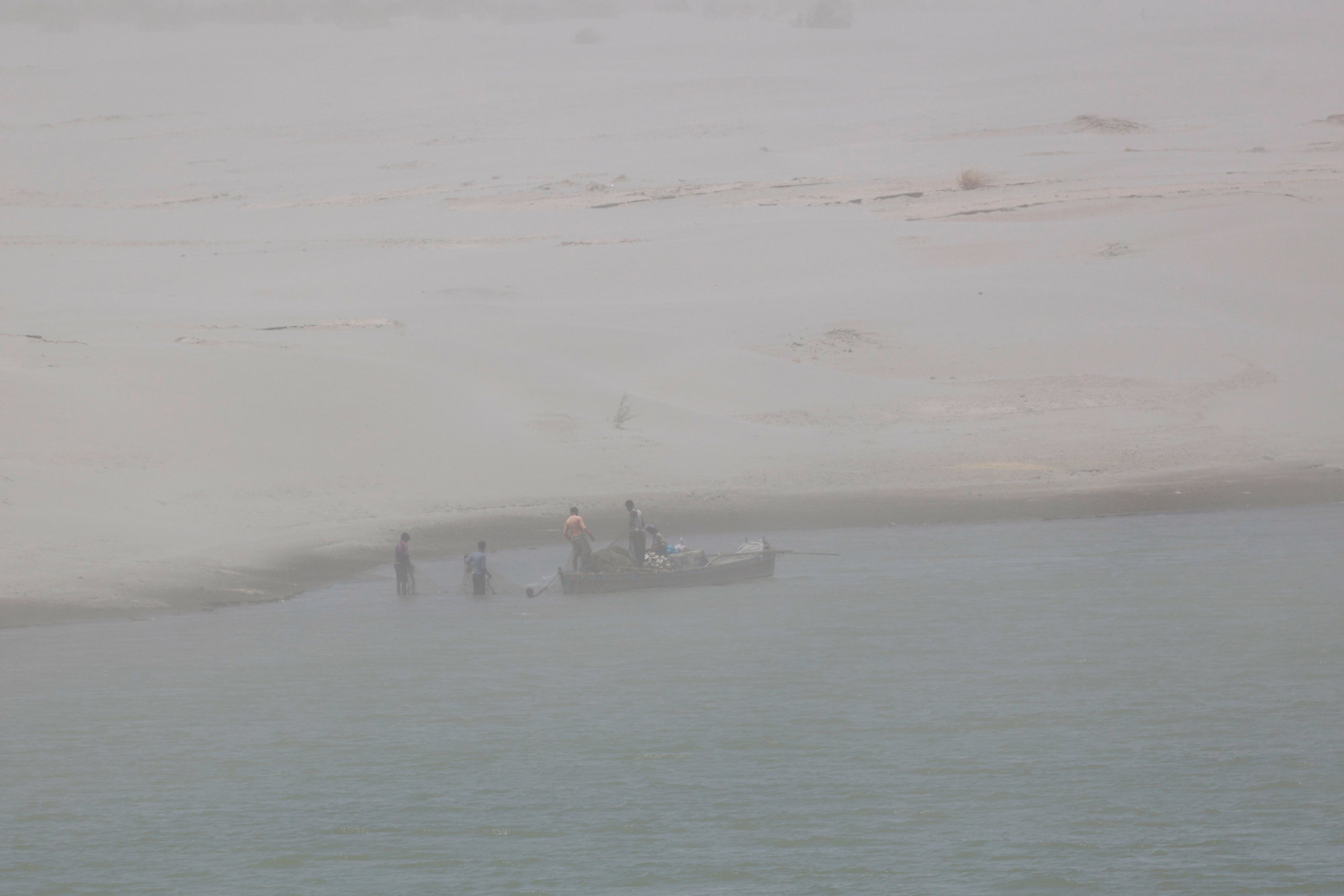
A five-member Pakistani delegation visited Jammu and Kashmir on Sunday to address Pakistan’s objections under the 1960 Indus Waters Treaty to 10 hydroelectric projects in the region. It is the first visit by a Pakistani delegation to the region since 2019.
The Indus River originates in the southwestern Tibet autonomous region of China, flows through the disputed Kashmir region and enters into Pakistan, draining into the Arabian Sea.
The treaty established the rights and obligations of both countries regarding the use of the Indus River system’s waters. It allocated the waters of the western rivers – the Indus, Jhelum and Chenab – to Pakistan, and the eastern rivers – the Ravi, Beas and Sutlej – to India.
The Pakistani delegation’s visit to Jammu and Kashmir marks a shift from Modi’s previous hints at revoking the treaty.
“Pakistan has already expressed its wish to have improved trade and other bilateral relations with India,” Choudhary said, adding that the Shanghai Cooperation Organisation meeting of heads of government, chaired by Pakistan, later this year would be a good opportunity for both countries to engage.
The delegation’s trip comes just days after Modi visited Kashmir on June 20-21, promising statehood amid the ongoing preparation for the Union Territory’s assembly elections.
It was Modi’s first visit to Kashmir since his government abrogated Article 370 in 2019, which had granted special autonomy to Jammu and Kashmir.
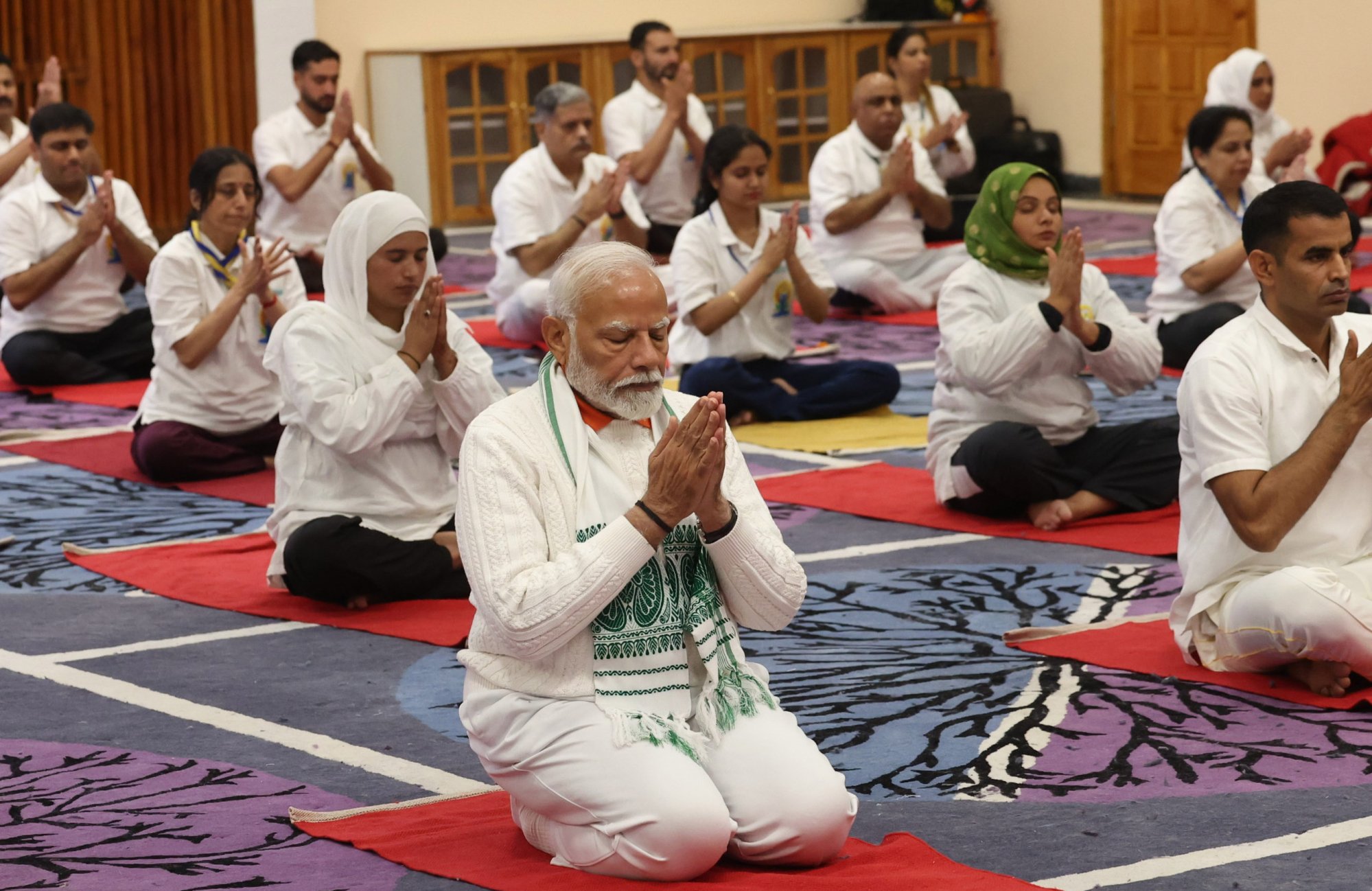
Choudhary said there had been optimism during Modi’s first term that he could bring about peace to the region. He had formed an alliance government in Kashmir to boost development, appointed a high-profile interlocutor, sent out multiple party delegations to meet separatists groups, and reached out to Pakistan.
“During Modi 1.0, he tried to do a lot in Kashmir but he never received political reciprocity for his efforts. Then in Modi’s 2.0 he went with full outrage, audacity and ruthlessness to execute things,” Choudhary said.
Choudhary noted most of the BJP’s national security objectives in Kashmir, including the removal of Article 370, the redrawing of electoral districts, and the alteration of land ownership laws to allow non-residents to purchase land, were achieved during Modi’s second term.
“Now is the time for stability and normalcy, showing people of Jammu and Kashmir that reconciliation will be on our terms,” he added.
The first step towards that reconciliation was to hold free and fair assembly elections in Kashmir that would resonate with all segments of the society – including both separatists and the mainstream political parties, Choudhary said.
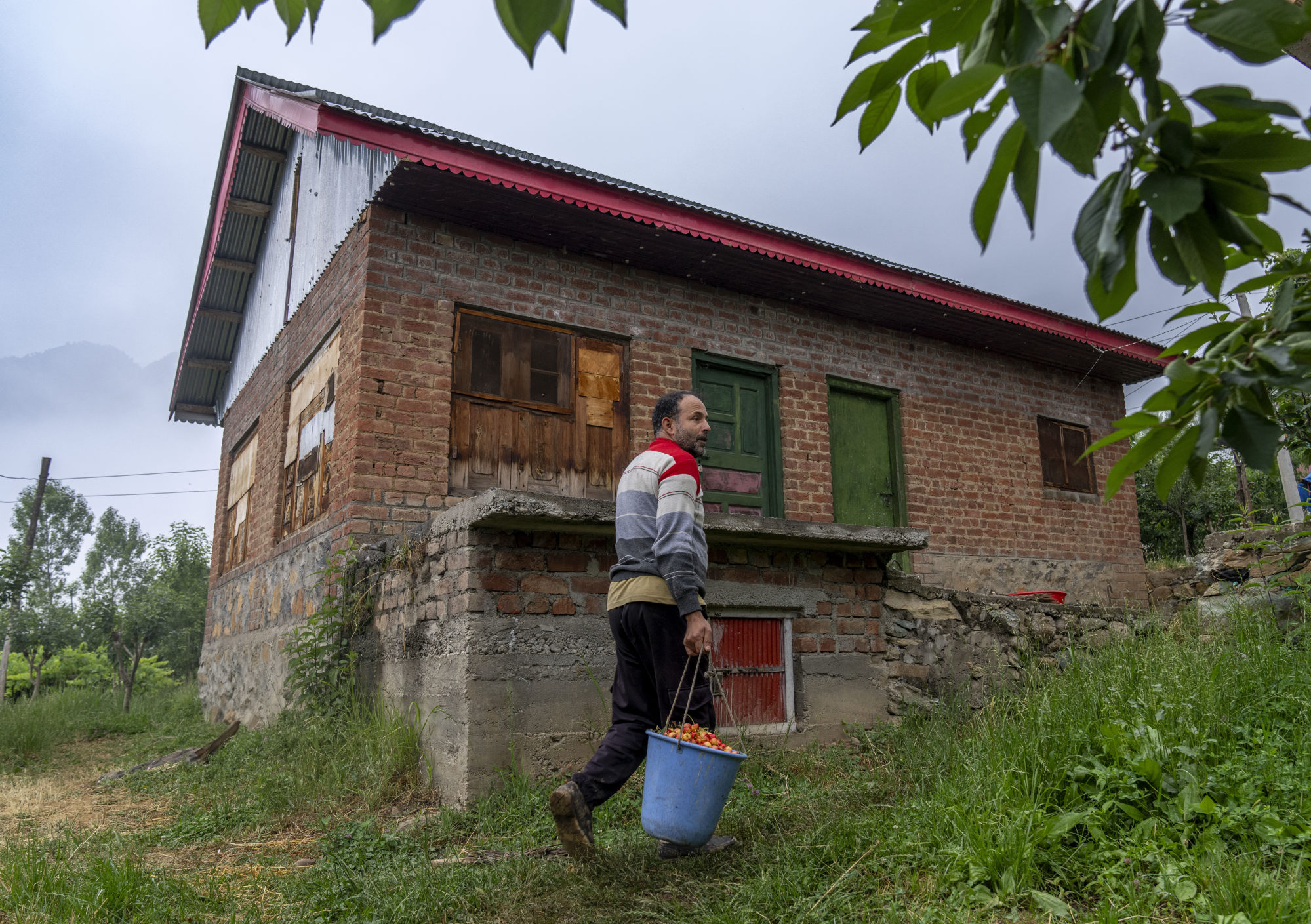
Jammu and Kashmir last witnessed an assembly election in 2014. Since 2018, it has been without an elected government.
Ashok Swain, a professor of peace and conflict research at Uppsala University in Sweden, had a different take, saying Modi’s BJP would persist in advancing an anti-Muslim, anti-Kashmir, and anti-Pakistan agenda.
Swain said the Pakistani delegation’s visit to Kashmir was part of the obligations under the water treaty, and Modi was well aware that abrogating the treaty would be complicated, especially with the World Bank as a party to it.
“His … performance in Kashmir seems designed to appease his Hindutva [Hindu nationalist] supporters … Modi understands that adopting a policy of peace and reconciliation towards Pakistan could cost him his fanbase,” Swain told This Week in Asia, adding that Modi’s alliance partners were unlikely to object to his anti-Pakistan stance.
“Therefore, Modi has neither the inclination nor the political necessity to seek peace with Pakistan,” he said.
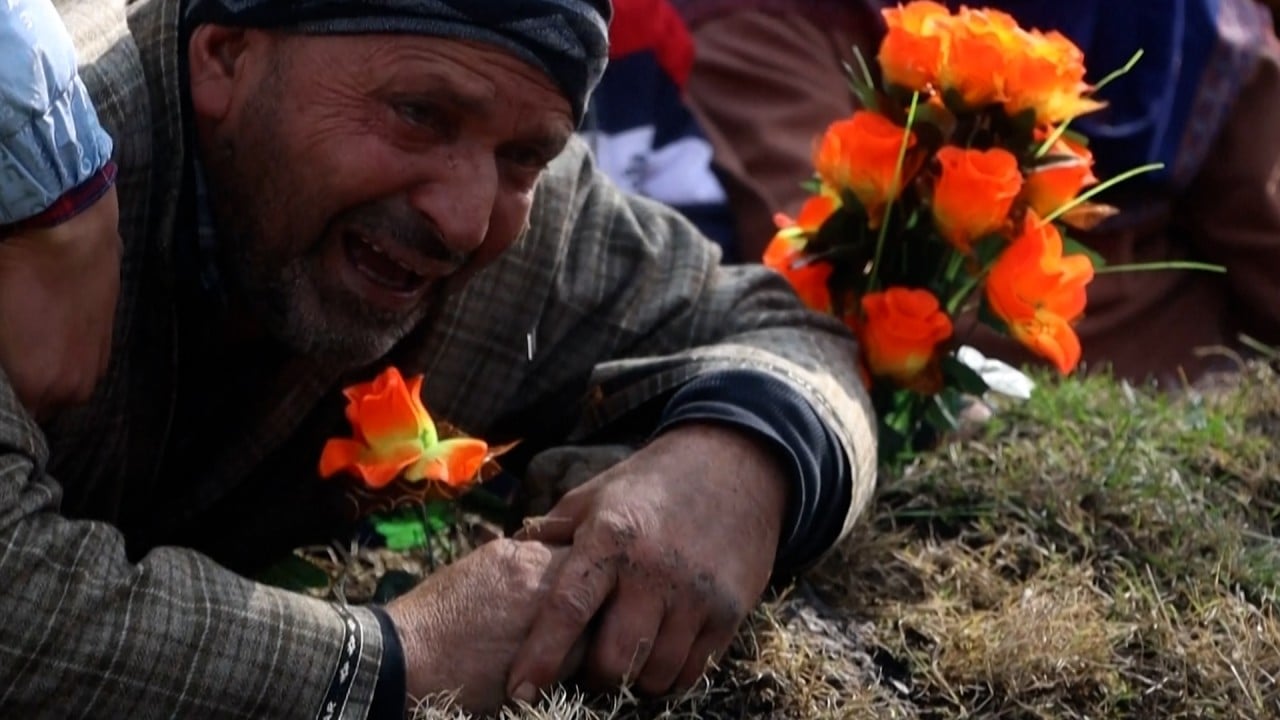
02:45
‘Basic human right to bury the dead in their land’: India’s crackdown on Kashmir rebel funerals
‘Basic human right to bury the dead in their land’: India’s crackdown on Kashmir rebel funerals
Michael Kugelman, director of the Wilson Centre’s South Asia Institute, said more exchanges on issues such as water sharing did not suggest bilateral relations were improving.
“I don’t think the relationship between India and Pakistan is on an upward trend. Both countries do not have interest in the relationship getting any worse, but at the same time neither country has an incentive to try to make the relationship better,” Kugelman said.
Both India and Pakistan would much prefer to focus on their respective challenges without having their own relationship becoming a distraction, Kugelman said.
“Pakistan is facing internal challenges, particularly with its economy. It is also dealing with a hot border with Afghanistan and Iran due to resurgence and terrorism. It doesn’t need new crises with India,” Kugelman said, adding that similarly, the new Indian government wanted to focus on China, which it regarded as its main foreign policy challenge.
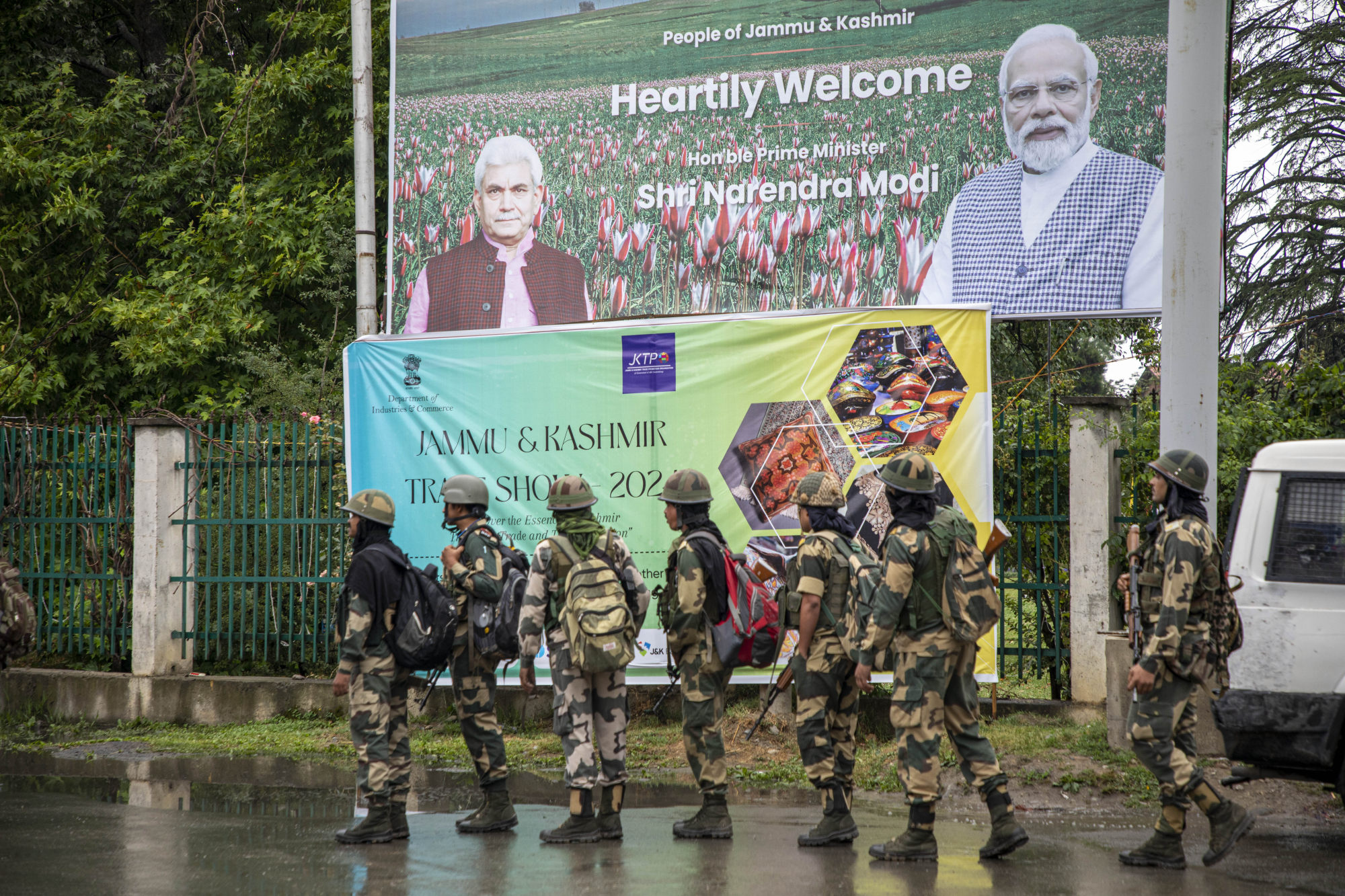
Kugelman said India was keen to project a sense of normalcy in Kashmir, one reason for pushing elections in the region.
“India wants to project that revoking Article 370 is bringing stability and prosperity to Kashmir. However, for Pakistan, that narrative is unacceptable, as they reject the revocation and want it reversed which it will not be,” he said.
Sandeep Shastri, director of academics at the NITTE Education Trust, said even though the Pakistan delegation visit was expected under the water treaty, advancing ties with Islamabad would be a feather in Modi’s cap in his third term.
Modi “would like to see the peace process advance with some give and take, depending on how the situation emerges overtime”, Shastri said.

